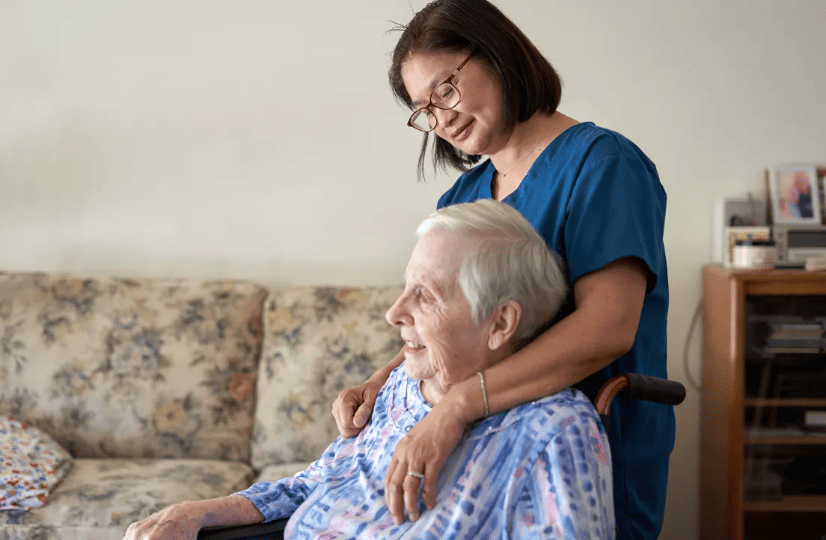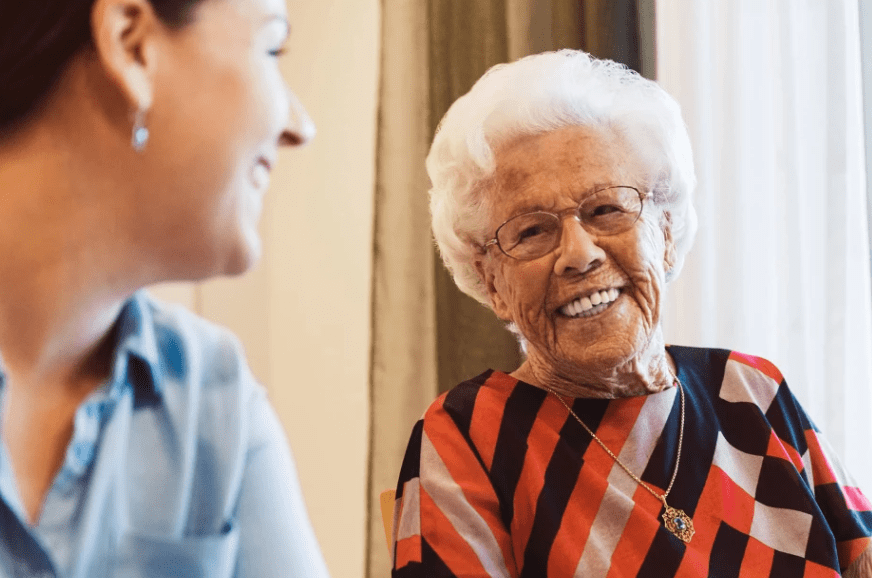- 5 Star Home Care COVID-19 Update PLEASE CLICK HERE
Depression Masking Dementia—Recognizing the Signs

Beyond the Pandemic: The Expanding Role of In-Home Care
July 22, 2020
Heat Risk Among the Elderly—How Hot Is Too Hot?
August 25, 2020As we age, we become more vulnerable to cognitive deficits (such as memory loss) as well as to mood disorders (like depression). Alzheimer’s, dementia, and depression often share similar symptoms, making it challenging, even for clinicians, to accurately assess elderly patients.
Under-diagnosis of depression can lead to insufficient treatment and to an increase in symptom severity; however, over-diagnosis may mean that patients receive unneeded medications, which may have adverse side-effects. For this reason, it is particularly important to learn to recognize the symptoms of depression, Alzheimer’s, and dementia to identify each disorder by differential diagnosis.

Depression, Alzheimer’s, and Dementia: Shared Symptoms
One challenge to clinicians, professional caregivers, and family members are the similarities between depression, Alzheimer’s, and dementia symptoms. Among seniors, early-stage dementia, Alzheimer’s, and depression can result in:
- Memory deficits
- Withdrawal from social life
- Loss of interest in family, hobbies, etc.
- Inability to concentrate for sustained periods
- Changes in sleep patterns (over- or under-sleeping)
Reaching a complete and accurate diagnosis often depends on going beyond these initial observations and looking deeper into an individual’s complete clinical picture.
Recognizing Dementia or Alzheimer’s
While the causes of cognitive decline among seniors are not fully understood, common symptoms can include:
- Memory loss
- Confusion
- Difficulty in performing activities of daily living (cooking, dressing, bathing, toileting).
Worsening cognitive decline can prove frustrating and disheartening to those with dementia or Alzheimer’s—making it harder for them to keep up with conversations, remember daily routines, make shopping lists, follow recipes, etc. Together, feelings of frustration or disconnection can have negative effects on mood, often spawning depressive episodes. While depressive episodes among seniors with dementia or Alzheimer’s may be less severe or of shorter duration, they should be taken seriously in any care plan.
Recognizing Depression
Unlike dementia and Alzheimer’s, depression is a mood disorder, with symptoms that are largely identified via a person’s affect. Depression sufferers tend to exhibit similar symptoms, which may include:
• Persistent feelings of sadness or hopelessness
• Persistent feelings of worthlessness
• Loss of pleasure in daily activities or interests
• Social isolation
• Reduced appetite or food consumption
• Sleep disturbances
• Agitation or irritability
• Fatigue
• Suicidal thoughts
Understanding these symptoms and learning to recognize them can help guide informed treatment decisions.
Confounding Factors
Reaching a clear diagnosis can often be confounded by other factors. These can include an elder’s prior medical history, lack of proper nutrition, and unanticipated interactions between prescribed medications. In addition, dementia, Alzheimer’s, and depression can present concomitantly in the same patient, making diagnosis more challenging. And many patients with more advanced dementia or Alzheimer’s may find it difficult to articulate their feelings. Taken together, these factors emphasize the need to evaluate an individual’s complete clinical picture when refining a diagnosis.
How an In-Home Caregiver Can Help
As we age, we often need assistance in performing daily tasks such as shopping or preparing meals. An in-home caregiver can help independently living seniors meet these challenges in an autonomous setting. Plus, an in-home caregiver has the opportunity to observe each client in the comfortable and familiar surroundings of the home.
An aide can see how each client performs daily activities and can assess areas in need of help. For example, a home caregiver may notice that a client has lost interest in reading or knitting. They may notice food going spoiled in the fridge, or appointments missed on the calendar. These markers can help build a complete picture of the client’s daily life, mood, and cognitive challenges. From this unique viewpoint, an in-home caregiver can provide invaluable support, as well as keeping family members and medical personnel informed of any changes in a client’s mood or cognitive abilities.
We hope you find this article helpful. At 5 Star Home Care, we remain committed to supporting both the physical and emotional needs of each client we serve. If you or someone you love is an independently living senior in need of in-home assistance, we’re here to help.
5 Star Home Care serves the Philadelphia metro area, including Bucks, Chester, Delaware, and Montgomery Counties. Contact us today, and discover what peace of mind feels like. Contact us today.




